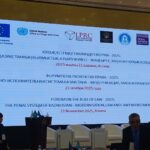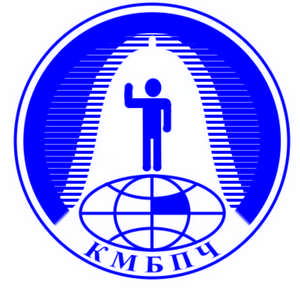In what may prove an ominous development for non-governmental activists in Kazakhstan, Russian and Kazakh officials have established a parliamentary-level mechanism to share experience on combating “the influence of foreign agents,” according to a major Russian information agency.
Interfax reported that the bilateral information exchange was agreed upon during a meeting in Almaty of the Council of the Collective Security Treaty Organization’s Parliamentary Assembly. The report went on to quote a Russian MP, Vasily Piskarev, as saying the new mechanism would establish a regular channel to “exchange legal norms regarding the protection of sovereignty, in particular, countering foreign interference and countering the influence of foreign agents in internal politics.”
Piskarev, who heads a State Duma commission to identify and root out instances of foreign meddling in Russia’s internal affairs, indicated the information exchange would be open to other CSTO members.
The news is putting members of Kazakhstan’s non-governmental sector on alert. Many are wary that such an information exchange could be a precursor to the introduction of ‘foreign agents’-style legislation in Kazakhstan. Ostensibly, such rules are designed to enhance disclosure requirements for entities, mainly non-profits and media outlets, that receive a substantial share of foreign funding. But prior experience has shown that provisions are also crafted in ways to give governments the ability to muzzle organizations that conduct activities or hold public policy positions that don’t coincide with authorities’ political preferences.
The Kremlin, for example, has used ‘foreign agents’ legislation as an instrument of repression, snuffing out all forms of internal dissent. Kyrgyzstan and Georgia have adopted Russian-style ‘foreign agents’ laws this year.
In Kazakhstan, concern is mounting not only about a possible foreign agents bill, but also about media freedom. The Kazakh Senate approved a media law in early June containing wording that could enhance the government’s ability to restrict independent journalists and outlets via a revamped accreditation process. The media bill earlier received approval from the lower house of parliament.
The Commissioner for Human Rights under the President of Kazakhstan, Artur Lastaev, told the German outlet DW last fall that the issue of adopting a law on foreign agents was “not on the agenda yet.” But, he added, “What will happen tomorrow, I cannot predict.”
In 2023, a Kazakh government agency established a registry for individuals “receiving money or property from foreign states, international and foreign organizations, foreigners and stateless persons.” But that registry, according to Lastaev, is designed solely to ensure that all taxes on such foreign income are paid. In September of 2023, the State Revenue Committee of the Ministry of Finance published a list identifying 240 individuals and entities contained in the registry.
Source: Eurasianet – Russian and Kazakh legislators set up information exchange to study foreign influence | Eurasianet
Almaz Kumenov is an Almaty-based journalist.

















